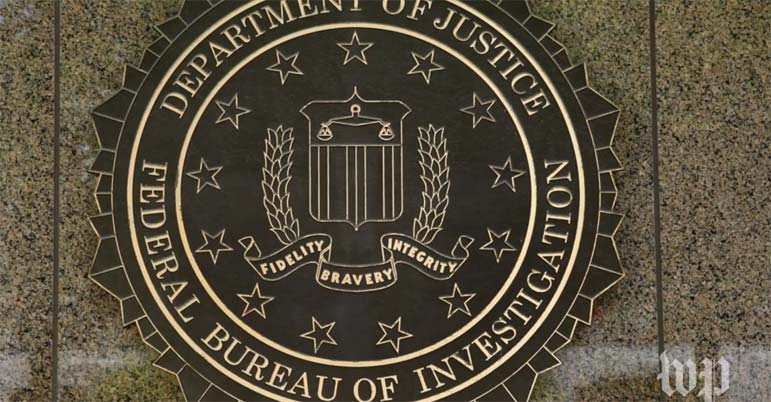
PITTSBURGH — Attorney General Jeff Sessions says he believes the FBI has an opportunity to win the American people's confidence back after two years of controversy that began with former FBI Director James Comey's handling of the Hillary Clinton email-server investigation right before the 2016 presidential election.
Sessions sat down with the Washington Examiner in Pennsylvania Western District U.S. Attorney Scott Brady's office overlooking downtown Pittsburgh last week, on the day news broke that then-FBI Deputy Director Andrew McCabe would be stepping down weeks before he was expected to retire.
Sessions' reaction was measured.
He said: "Well, I have believed it was important to have a fresh start at the FBI, and actually, it was in my letter to the president when I recommended Comey's removal. I used the words, 'fresh start,' and the FBI director is Chris Wray, a very talented, smart, capable leader.
"I think it will give them an opportunity to go straight to the American people and say, 'we are gonna win your confidence.'"
When asked whether he was concerned that the FBI had become too politicized, Sessions said the agency needs to be careful: "Well, I would just say it this way. The Department of Justice, which includes the FBI, we all, we tend to be defensive. At this point in time, I think we need to go the extra mile to make sure that everything we do is not political. Everything we do is based on law and facts. And, whether we like it or not, there's been erosion some in the confidence of the American people at the FBI and Department of Justice."
He added, "And we need to earn that back, and because the heart and soul of the Department of Justice is very good."
The McCabe announcement initially caused wild speculation that he was forced out by Trump, only to be followed by reports that Wray implied in an all-bureau email that an inspector-general investigation was at the center of McCabe's departure. Wray reinforced to his staff in the email that he was not being swayed by politics.
Sessions came to Pittsburgh to discuss a new team of federal drug agents, computer experts and analysts called the Joint Criminal Opioid Darknet Enforcement team, or J-CODE team. The group will take on online opioid trafficking and act as a single resource for several agencies to target drugs sold on the darknet worldwide.
Sessions also discussed the Opioid Fraud and Abuse Detection Unit, which he ordered last summer. "It has a focus on opioid-related healthcare fraud where I have assigned a dozen prosecutors in hotspot districts like Pittsburgh," he said.
He pointed to a Pittsburgh area doctor, Andrzej Zielke, who is under indictment here for allegedly running a pill mill. Sessions spoke about his role in combating the opioid crisis and discussed the role of the Justice Department on immigration.
Washington Examiner: How many cities do you plan on visiting on the opioid initiatives?
Sessions: Well we are here today. We've traveled to quite a number of cities in Ohio and West Virginia and Virginia, and other places where we're seeing these unprecedented deaths, addiction, that's occurring out there. We've never seen anything like that before. I started in the '80s, and drugs were much worse then. Actually, in the '70s, I was prosecuting as a young assistant U.S. attorney, and I saw the trends get bad, but the drugs were not as pure and powerful as heroin is pure today, to levels we've never seen before, and fentanyl is just a killer drug.
Just the slightest miscalculation and a person's life is gone.
Washington Examiner: We had a police officer in nearby East Liverpool, Ohio, who overdosed just because he had a couple of specs on his pants, and he brushed them off, and he overdosed. Had someone not been near him, he would have died.
Sessions: Right, and they are using all kinds of masks and things when they test the drugs, the chemists do. It's just an exceedingly dangerous substance. Oddly, confirmed here today to me that I've heard repeatedly, is that when the word gets out that people are dying from fentanyl, instead of scaring users away and addicts away, they want more of this powerful drug. It attracts them, instead of repelling them.
People need to know how powerful these addictions are. Really fine people that have so much potential cannot break the habit. Even after expensive treatments, they relapse. We've got to prevent people from getting addicted, and that's what the president said in a meeting we had about opioids recently. He said, "You should not start."
He talked about his brother, his life as an alcoholic, and how he never used drugs himself, or alcohol. And, I think he should talk about that. If you don't start, you won't end up this way, and there's just a lot of cases where people ... families have spent untold dollars to try to save their children, and they can't do it, and lost them.
So, it's a tragic thing.
Washington Examiner: What do you see your task force being able to accomplish, and do you think you have enough funding for it?
Sessions: Well, we're planning to operate with the overall funding that we have, and we're gonna redirect money to put a lot more money into the opioid issue. The president has declared it a national health emergency, and it is indeed. It's the number one cause of death for people 50 years old and younger. This is an amazing number, and so we are going to redirect and give priority to this. We have a number of tactics, strategies, so we're going to ... we believe a significant amount of the addictions start as prescription drug pain medication addictions, and when they can't get enough of the pills, then they go to heroin and the fentanyl.
There's no doubt that's the significant part of the problem. We are hammering, and right here in this district, they are hammering doctors and pain clinics and abuses of prescription drugs. We believe that we prescribe too many of these pain pills. That number needs to continue to drop; it's dropped some already. Maybe doctors themselves are self-policing, and being more aware of the danger. So, we want that to go down.
(Deputy Attorney General) Rod Rosenstein has been in China, I've met twice with Chinese delegations on fentanyl. We think so far it seems that China is seriously moving to improve the circumstances in that these analogs of fentanyl and opioids have caused problems for them legally in China, too. They're fixing it like our (Drug Enforcement Agency) has fixed it here, and then they promise to be more aggressive in shutting down this industry.
So, we're hopeful that will make a positive difference. We're working with the Postal Service, they are here and others, to see if we can identify the transshipment of it, and we're gonna start at the bottom and work up as we always have done to find out the sources of the fentanyl. Which isn't unlimited sources, so therefore is an opportunity to make progress.
Salena Zito is a CNN political analyst, and a staff reporter and columnist for the Washington Examiner. She reaches the Everyman and Everywoman through shoe-leather journalism, traveling from Main Street to the beltway and all places in between.


 Contact The Editor
Contact The Editor
 Articles By This Author
Articles By This Author